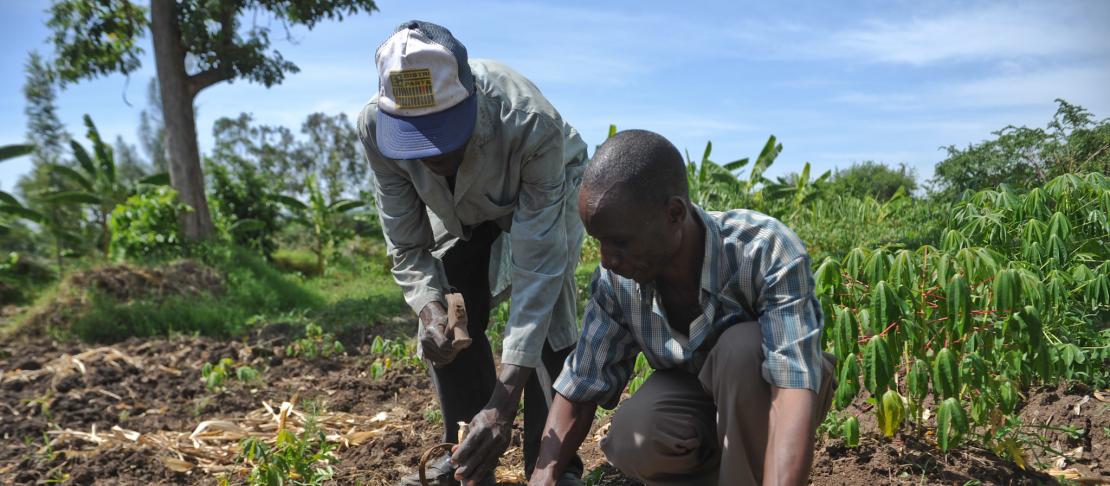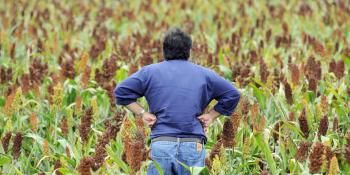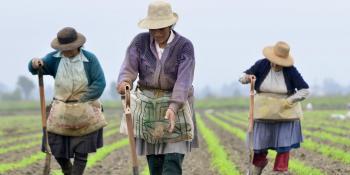Post-COP22 roadmap: Kenyan stakeholders explore implementation of the Paris Agreement

Kenya commits to address climate change by putting in place policies and plans that will help enhance resilience to climate change and inform low carbon development.
The CGIAR Research Program on Climate Change, Agriculture and Food Security (CCAFS) East Africa program and the Climate Change Directorate at Kenya’s Ministry of Environment and Natural Resources hosted a stakeholder meeting in Nairobi on 13 December 2016 to discuss the outcome of the 22nd United Nations Framework Convention on Climate Change Conference of Parties (COP22) and identify specific actions going forward. The stakeholders were from research, policy, private sector and civil society organizations.
Stakeholder participation and engagement opportunities
Civil society organizations (CSOs) should be involved in implementing the Nationally Determined Contributions (NDCs). “Implementation should touch the grassroots, especially focusing on rural development and addressing GHG emissions and eliminating poverty,” emphasized Wanjira Mathai from the Green Belt Movement.
There is need to connect the research and the private sector communities to develop climate-smart related good and services.
Similarly, Winfred Lichuma from the National Gender and Equality Commission commended the negotiators focusing on gender for making excellent progress. As a result, the Lima work program established in 2014—which aims to advance implementation of gender-responsive climate policies and mandates across all areas of the negotiations—was extended for 3 years.
From the Kenya Private Sector Alliance (KEPSA), Suresh Patel emphasized that agriculture is the backbone of the production industry and there is need to shift from “software” discussions to development of “hardware” which is critical for adaptation and mitigation.
As we unpack the NDCs there are a lot of opportunities for the private sector, research and CSOs to support the government to implement the NDCs. On 22 April, Kenya signed the Paris Agreement and is in the process of ratifying the Paris Agreement. Moving forward, the Climate Change Act will guide the country on how to undertake adaptation and mitigation activities and all parties are encouraged to follow the duties as highlighted in the Act.”
Pacifica Ochieng, from the Climate Change Department
There is also need for transparency and accountability at national level as emphasized by Psamson Nzioki from Transparency International. The transparency framework being developed at the UNFCCC is critical to the implementation of the Paris Agreement and the NDCs.
Research institutions have a critical role to play in generating data and evidence, including developing tools and models to be used in implementing the NDCs. For example, on agriculture, CCAFS is already working with partners to identify how science can feed into the implementation process of the NDCs on agriculture. Notably, 98% of all African countries included actions on mitigation and adaptation in agriculture in their INDCs.
Read more: What next for agriculture after Marrakech climate conference?
Moving forward
The areas identified for action and implementation beginning 2017 include:
- Training and capacity building of delegates and negotiators on gender and youth engagement, focusing on the implementation of the NDCs in the context of the Paris Agreement, for instance.
- Development of efficient energy solutions taking into consideration community preferences and needs.
- Urgent completion and submission of Kenya’s National Adaptation Plan (NAP) to take advantage of the GCF funding which is 3 million USD per country through the GCF readiness and preparatory support programme for NAP support.
- Kenya should also consider nominating experts to participate in the ad hoc technical expert group (TEG) which will meet during the 46th session of the Subsidiary Body for Implementation (SBI) and the 46th session of the Subsidiary Body for Scientific and Technological Advice (SBSTA) by early February 2017.
- Regarding gender and extension of the Lima work program, Kenya needs to appoint a national gender focal point for negotiations.
- Development of the gender action plan—to be spearheaded by the National Gender Commission —and due for submission in January 2017.
- The Climate Technology Centre and Network (CTCN) offers an opportunity to develop technologies to implement the NDCs. Kenya, through the Kenya Industrial Research and Development Institute (KIRDI) will examine how to participate.
- On carbon markets, Kenya Electricity Generating Company (Kengen) will bring together stakeholders to develop their submission to the UNFCCC before March 2017.
CCAFS East Africa will continue to work with Climate Change Directorate at the Ministry of Environment and Natural Resources and the Climate Change Secretariat at the Ministry of Agriculture, Livestock and Fisheries (MoALF) to develop evidence and tools for upscaling and outscaling climate-smart agriculture and linking to the NDCs.
Read more
- CCAFS Blog: Climate change bill signed into law in Kenya
- CCAFS info notes: Agriculture's prominence in the INDCs: data and maps
- Media report: Key stakeholders outline Kenya’s climate plans after COP 22
Catherine Mungai is the Partnerships and policy specialist at CCAFS East Africa.
Maren Radeny is the Program Coordinator at CCAFS East Africa.




